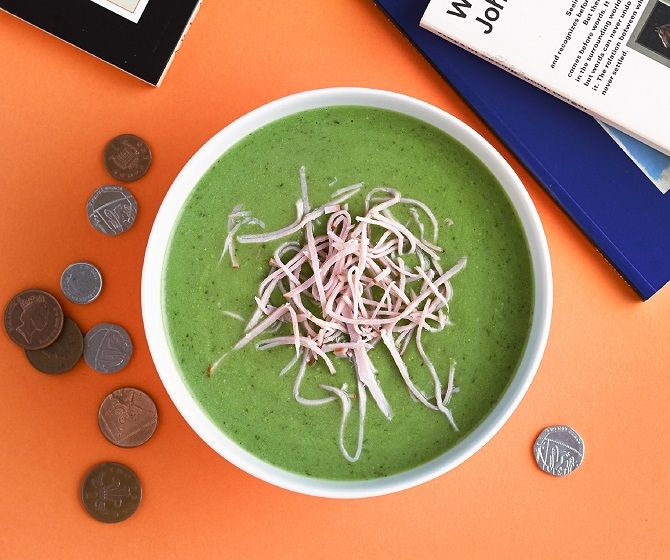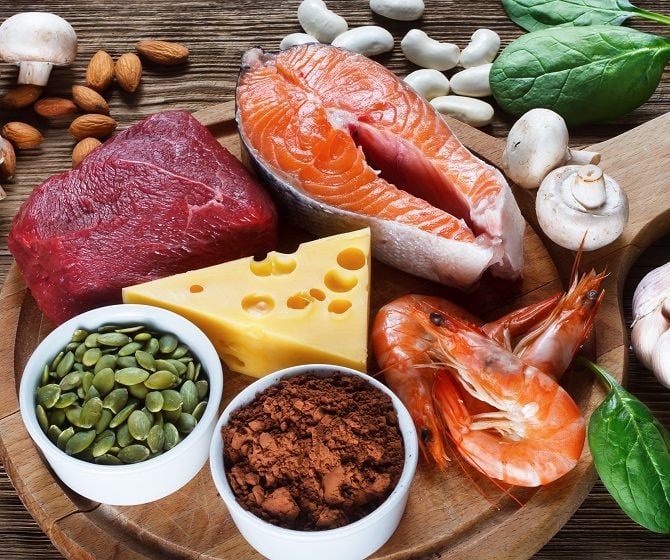By Will Hawkins
10 food swaps to drastically improve your diet
Eating healthily isn't always easy. However, as our ten top tips show. it doesn't have to be time consuming or expensive.
There's a wealth of scientific evidence to suggest that diet is by far the most important factor when it comes to how long - and how healthily - we live.
While the internet is chock full of impractical advice on switching your diet to subsist on a range of mysterious plants you've never heard of, let alone seen in the supermarket aisles, it's not as hard as you might think to get a lot more out of your diet with a few simple tweaks.
In this guide, we'll look at 10 easy ways you can boost your diet without sacrificing taste, or having to search for obscure ingredients.
Most important meal of the day
To rehash some popular advice, breakfast really is the most important meal of the day. Fitting in three square meals a day will give your body the time it needs to properly digest the nutrients you feed it, keep your blood sugar and energy levels at an optimum and prevent overeating.
While oats are often touted as one of the healthiest breakfast foods, let's face facts - they're not the tastiest, especially when compared to the sugar-filled cereals we're used to gobbling in the morning.
People often try and tackle this by adding cream, brown sugar and other goodies, but this can offset, if not cancel all the health benefits of oats and other healthy cereal swaps.
But all is not lost! To get round this, you might want to try:
- Replacing milk or cream with low or non-fat yoghurt
- Swap sugar for honey and/or cinnamon
- Add apple, banana or strawberry chunks for some variety
A lot of noise is made about the benefits of English Muffins and while they do offer slightly less calories than a bagel or comparable serving of bread, in terms of nutrients - it's something of a trade off. You'll get a lot more calcium, but a lot less niacin (a nutrient used to power your cells) in English Muffins than in bread.
If you usually go for a store-bought fruity yoghurt, it's well worth swapping this out for a low/no-fat yoghurt and adding some chopped fruit of your own, like strawberries. This'll drastically reduce your sugar intake while enhancing the amount of fibre you get.
Lighter lunch
A lighter lunch can really pack a punch when it comes to improving your diet. All too often, we're tempted by the prospect of a midday treat, but healthy doesn't have to mean bland.
Sandwiches are a British lunchtime staple and you can make a great swap here. Simply switch out butter, which is full of saturated fats that over time can raise your LDL cholesterol level, for olive oil.
Since it's still relatively calorific, you should still use it in moderation, but with this one tiny tweak, you can enjoy a great tasting spread with a fraction of the saturated fat.
You might also be in the habit of using lettuce as your token green in a sandwich, but while it may provide a nice crunch, it doesn't do much in the way of nutrition.
Instead, swap out your iceberg for a similar amount of spinach. It's low-calorie and packed to the brim of vitamins A and C, magnesium, folate and iron - giving you a nice nutritional boost that'll see you through the rest of the day.
What about dinner?
When it comes to your evening meal, one easy substitution to make is in the seasoning. There's no denying salt is moreish - but it can be terrible for your heart, kidney and brain if eaten to excess.
Tip one is to skip the salt while cooking. A little will go a long way if you add it just before you serve and your organs will thank you in the long run.
You might also want to look at substituting salt for some different seasonings. We're not saying they'll be the perfect replacement for the savoury kick you get from salt, but dried herbs and spices can be a great avenue for weaning yourself away from it.
To get rid of a sizeable chunk of saturated fat, consider switching out red meat for fish. While the former will provide a great source of protein and iron, fish is rich in omega-3 fats, which have been linked to a range of health benefits, including better eyesight, hearing and even mood.
For instance, swapping steak for salmon could save you around eight grams of saturated fat.
And what about that Great British staple, chips? Surely nothing can replace them, right?
Wrong! Meet celeriac, a fairly unattractive root vegetable that can act as a healthy alternative to potato in a variety of dishes, including chips.
It's low in calories, high in fibre and brimming with antioxidants, vitamin K and various minerals and while it's a little more expensive than your average tattie, it's a healthy switch that could transform your diet.
And you?
While we've covered some of the easiest and most effective food swaps, we'd love to hear your tips and tricks - so if you've got any recipes to share, be sure to let us know in the comments, or give us a shout on Facebook, or Twitter.
And if you're looking for expert advice on nutrition, or any personal health goal, you can use Push Doctor to speak to an experienced GP through your smartphone, tablet or computer within minutes:

